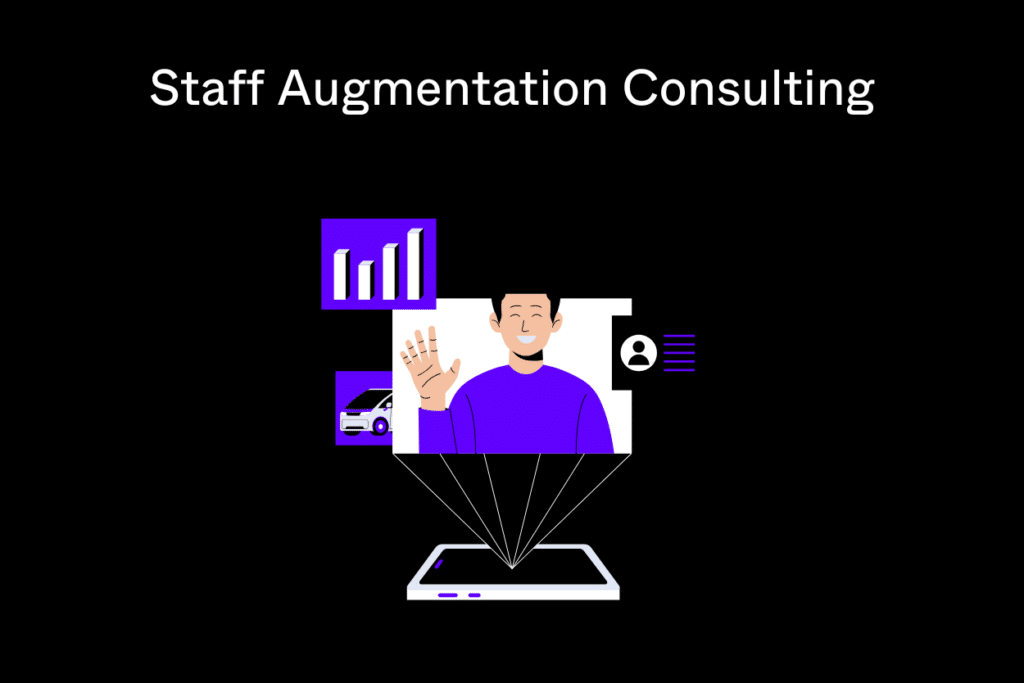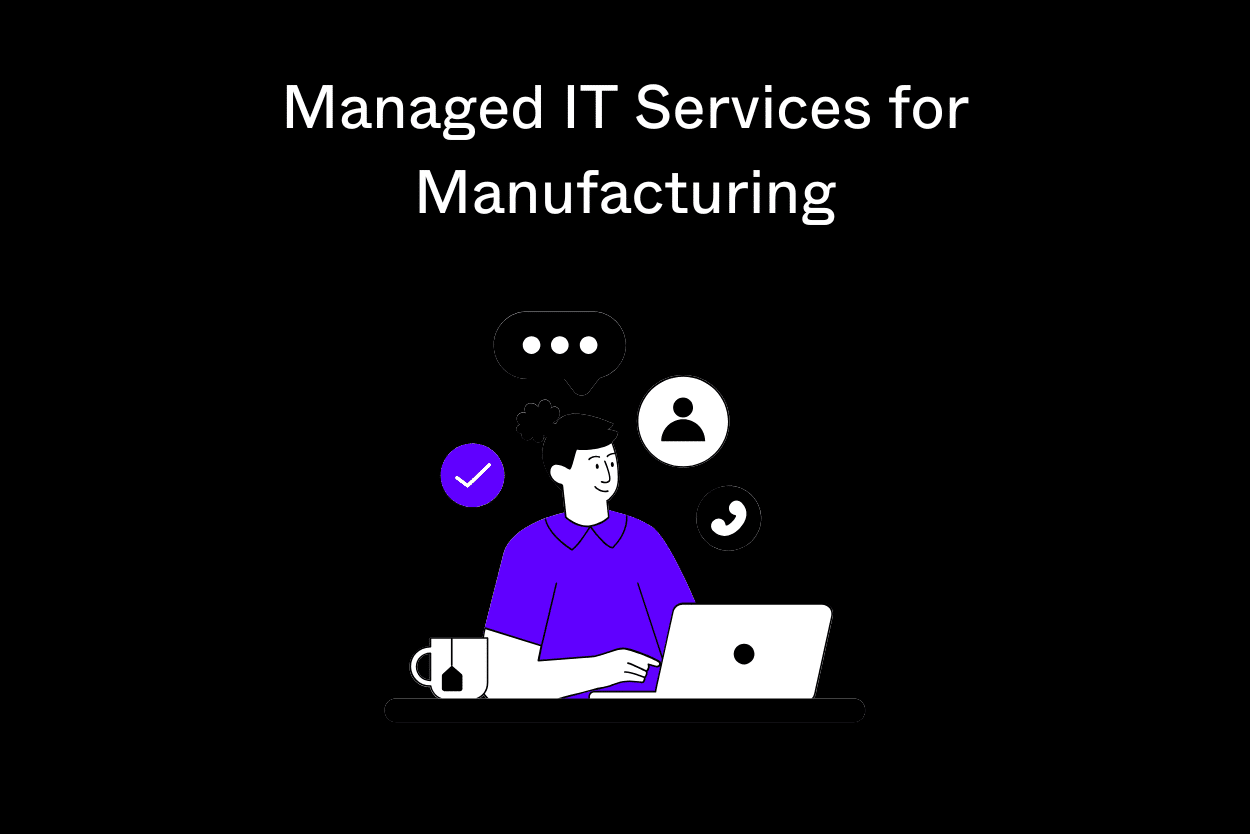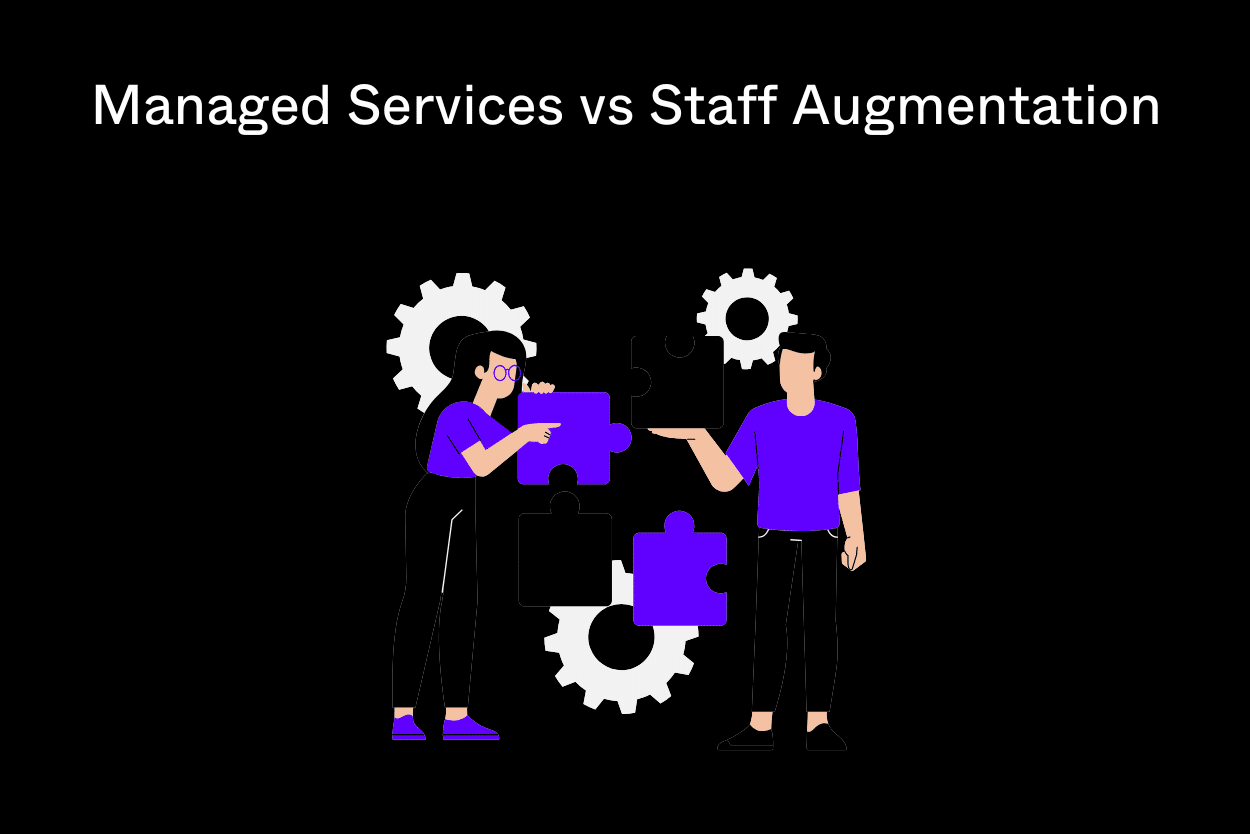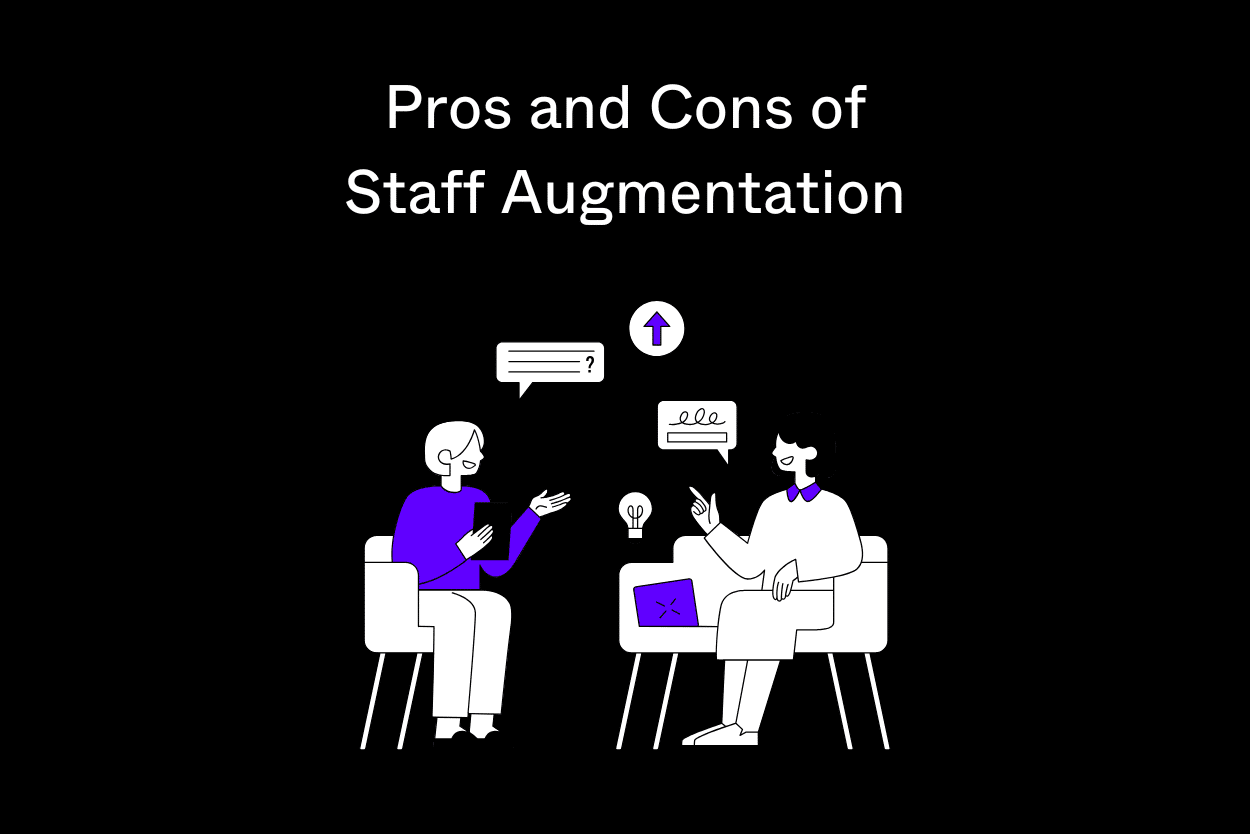
In the modern business landscape, agility and flexibility are paramount for companies aiming to stay competitive and innovative. Staff augmentation consulting has emerged as a pivotal strategy in achieving these goals by providing a dynamic approach to workforce management.
The global staff augmentation market was valued at $92.5 billion in 2021, and is projected to reach $129.3 billion by 2027.
This model allows businesses to respond swiftly to changing market demands and technological advancements without the long-term financial commitments associated with full-time hiring.
What is Staff Augmentation Consulting?
Staff augmentation consulting is a flexible workforce solution where businesses temporarily engage external professionals to complement their existing teams.
This is particularly advantageous to leverage specific skills and respond rapidly to project-specific demands. By blending in external talent, companies can maintain a lean core workforce while scaling up or down depending on changes in project requirements.
Why Choose Staff Augmentation Consulting over Full-time Hiring?
Staff augmentation provides many advantages over full-time hiring:
Flexibility and Scalability: This allows one to scale the size and skill set of their workforce much faster to match project requirements than if one were dealing with a fixed employee base.
Cost Efficiency: The long-term employee benefits, training, and other related overheads that need to be covered are fewer with this model.
Access to Expertise: Augmentation enables companies to tap into the global talent pool and secure specialist skills for specific periods of time, thereby allowing high-quality output without the long-term expense.
Speed: Companies can fast-track specialists; lead time on project initiation and completion is minimized.
Type of Staff augmentation roles in IT department
Staff augmentation consulting in the IT department may be classified depending on various needs, requirements of the project, and levels of expertise. The following are general types of staff augmentation consulting roles especially within the IT department:
1. Software Development
This includes adding some software developers that are proficient in specific programming languages, such as Java, Python, or C#, frameworks, or technologies to your team. These professionals may help speed up development cycles and manage workload peaks during product launches or updates.
2. Project Management
IT project managers. These are individuals who take charge of the scope, budget, and timeline. The process helps monitor projects while keeping them on track according to the predefined objectives, including incorporating best practices and methodologies such as Agile or Scrum.
3. Website Designers
Website designers focus more on the aesthetic and user experience aspects of website development. They determine the visual layout, color schemes, and graphic designs of websites to make them presentable and user-friendly.
4. Web Developers
The core structure of a website is built and maintained by web developers. They do everything from building the front end to working on the back end, managing all aspects of functionality and performance, through the integration of APIs, etc., to ensure cross-platform capability.
5. Data Science and Analytics
Data scientists and analysts can be engaged to manage big data initiatives, perform statistical analysis, and derive actionable insights from complex datasets to support decision-making processes.
6. Cloud Specialists
Cloud specialists are required to be part of the migration project, manage cloud services, and optimize cloud operations to improve scalability and performance when many businesses move into cloud environments.
7. User Support and IT Helpdesk
Temporary IT helpdesk staff may be required for increased helpdesk calls, such as during system upgrades or rollouts. This is because it is crucial support to end-users in solving technical issues quickly and efficiently.
8. Network Engineering
Network engineers assist in network infrastructure management and growth, including providing reliable connections and performance. They are crucial in maintaining networks for enterprises over time, doing upgrades, and troubleshooting.
9. Quality Assurance and Testing
Quality assurance and testing engineers or testers are indispensable to software development because they guarantee that applications conform to quality expectations and are delivered without bugs on their launch date.
10. Database Administration
DBAs play a critical role in the companies’ management of database performance, integrity, and security by making data accessible and ensuring effective management.
How Staff Augmentation Consultation Saves Costs
Staff augmentation helps in cost-saving by doing away with the following costs:
Eliminating Recruitment and Training Expenses: Reduces the requirement for extensive recruitment processes and related costs of training new full-time employees.
Reducing Benefits and Compensation Overhead: Generally, temporary workers are paid fewer benefits than regular employees; hence, they decrease the cost of overheads substantially.
Avoiding Excess Labour Expensive Cost: Usually, companies hire workers on a project. This way, a company will only pay for the number of laborers whom they require and not for unproductive manpower because of the underemployment.
| Cost Factor | Full-Time Employee Cost | Staff Augmentation Cost |
| Salary | $1,00,000/year | $50,000/year |
| Benefits (e.g., health insurance) | $10,000/year | Included |
| Recruitment and Hiring | $4,000/employee | $500/employee |
| Training and Development | $3,000/employee | Included |
| Office Space and Supplies | $2,000/employee | Not applicable |
| Employee Turnover | $7,000/employee | Not applicable |
| Administrative Costs | $1,000/employee | Included |
How Staff Augmentation Services Improve Business Agility
Staff augmentation increases business agility by:
Allowing Rapid Response to Market Changes
Quick Response to new opportunities or challenges without the time lags in scaling a permanent workforce.
Providing Access to New Technologies and Skills
Temporary staff can add expertise in the latest technologies and practices and thus build innovation and competitive superiority.
Supporting Geographical Expansion
Companies can hire new market staff quickly without the trouble and expense of relocating permanent employees.
When to Choose Staff Augmentation and Consulting Service Together
Staff augmentation service is best taken with consulting when:
Complex Projects Arise: The project demands highly specialized expertise, which is missing in the existing in-house team.
Strategic Overhauls: During periods of significant change, such as digital transformations or market expansions, where external insights and skills can drive success.
Regulatory Compliance Needs: When industries face new regulations and need immediate expertise to comply without impacting ongoing operations.
Is Staff Augmentation Consulting the Way to Go in 2025?
Staff augmentation consulting is going to be an increasingly relevant and strategic choice for businesses in 2025.
This strategy is required by companies, in the present digital transformation era, push for more flexible work arrangements, and uncertain economic environments that will make the companies resilient and agile.
Conclusion
Staff augmentation consulting offers a strategic advantage by enabling businesses to remain agile, reduce operational costs, and access critical skills on-demand. As companies continue to face rapid changes and technological evolutions, this model provides the flexibility to scale effectively and meet the challenges of tomorrow. It is not just a temporary solution but a long-term strategy that aligns with the future of work.
By leveraging the insights from Tsaaro and other industry examples, it’s clear that staff augmentation not only meets the immediate needs of project-specific expertise but also prepares organizations for future growth and innovation
Resources: https://www.statista.com/



